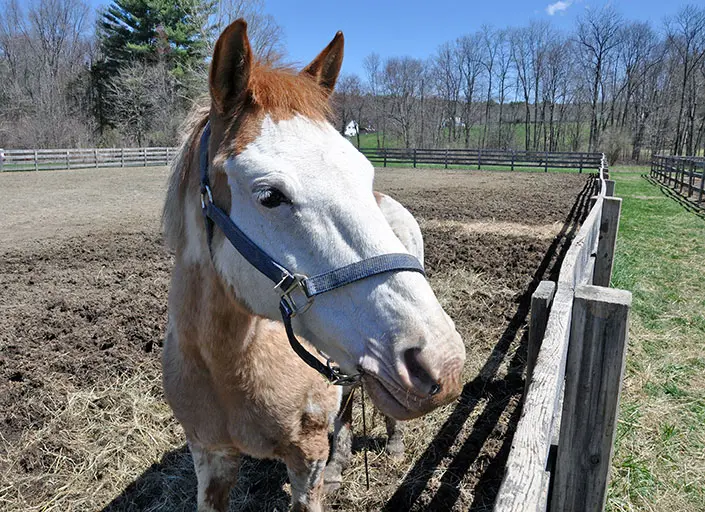ASPCA Vet Direct Safety Net Program Researches Increased Welfare, Retention of Owned Horses

How can veterinarians and rescues help owners who can't afford some aspects of health care but want to do the best for their equines? One answer is the Vet Direct Safety Net initiative, a partnership between the ASPCA, the American Association of Equine Practitioners (AAEP), and the Foundation for the Horse.
We know a lack of access to affordable veterinary care is often cited as the cause of poor equine welfare and owner relinquishment. To help address that need, in 2018, the ASPCA's Equine Welfare department began piloting Vet Direct Safety Net, a program that empowers equine veterinarians to locate and provide care to at-risk equines in their communities.
In 2020, ASPCA partnered with AAEP and its Foundation for the Horse to cast a wider net by providing AAEP-member veterinarians in the US financial resources to locate and provide care to at-risk equines in their communities.
Veterinarians are supported for up to $500 one-time per client per horse to provide emergency stabilization procedures deemed appropriate or compassionate euthanasia for horses in need when their owners can't afford needed medical care. Owners are asked to pay for a portion of the care they might be able to afford.
Keeping horses in the loving homes they already have is not only practical and pragmatic, it is often the best thing for the horse.
Encouraging Results
To date, the program has served more than 100 horses, with nearly 80 veterinarians or clinics participating. The average cost per horse is $467. Clients have contributed approximately 44% of the total cost of care for horses helped through the program.
Of owners surveyed, 100% of the horses that received care (other than euthanasia) are still in the home and their welfare is supported.
Many equines served by the Vet Direct program have special circumstances that put them at risk. Anjisun, for example, developed colic at the same time his owners were experiencing serious medical issues of their own and couldn't afford to care for his treatment.
After receiving basic care (medical, in-field colic resolution) from a Vet Direct partner veterinarian, he made a full recovery and is still in his home.
Dusty had a severe and painful case of navicular disease while one of his owners was in hospice care. After careful consideration, the family and a Vet Direct veterinarian decided Dusty's best option was euthanasia.
The family says this support lifted a huge financial and emotional burden and prevented Dusty from suffering further.
How to Get Involved
Veterinarians: AAEP-member veterinarians in the US are invited to read more about the program or contact Sue Stivers by email or phone (859) 233-0147.
Shelters/Rescues: This program aims to keep equines out of rescue when retention in the home is best for the individual horse. If your shelter or rescue receives a high volume of calls from individuals looking for help, and you have a veterinarian in your community interested in working with underserved individuals, please email us to learn more. Early feedback from the program suggests it may be best to rehome some horses served by Vet Direct, making partnerships with adoption centers even more important.
Owners: Individual equine owners whose animals might benefit from basic veterinary care can email AAEP to learn if a Vet Direct Veterinarian may be available in your area.
